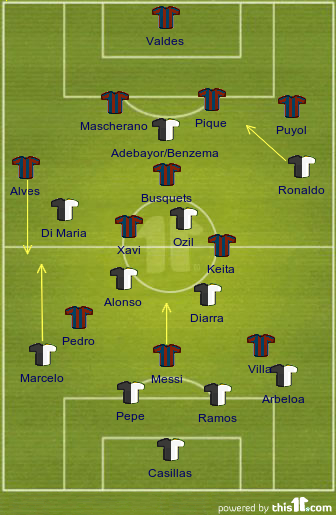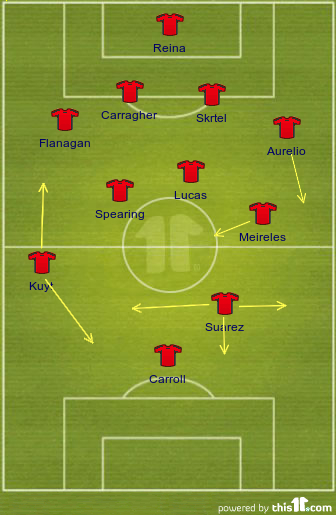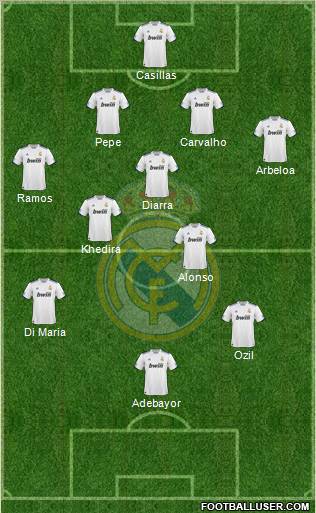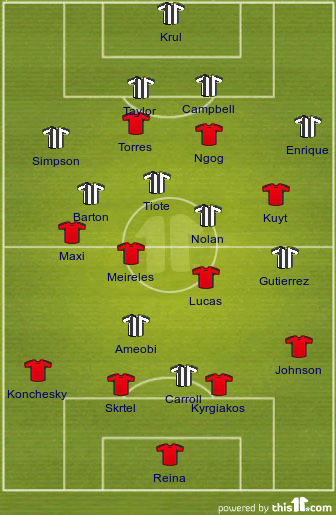
It was Pardew's first game in charge after Chris Hughton had been unceremoniously replaced, and Newcastle still had Andy Carroll in their arsenal (he provided the knock-down for the first, the flick-on for the second, and rifled in a twenty-yard screamer for their third). Kuyt had capitalised on a mistake by the creaking Sol Campbell to equalise with the softest whimper of a deflected goal you're ever likely to see but it will, above all, be remembered as the scene of Woy's bizarre face-rub, a slightly disturbing sign (if any were needed) that he wasn't cut out for the job.
Although, at times, Liverpool had played fairly well - there was, after all, some genuine quality on the pitch - the game represented the real dark depths of the Hodgson era. The flat, narrow, rigid 4-4-2 looked stodgy and predictable, the Torres-Ngog strike partnership proving particularly fruitless, and aimless deep crosses from Paul Konchesky were a regular feature. The change in Liverpool's fortunes since, though, is remarkable.
Probably only four or five players of the same players will feature in red on Sunday, and the formation will be quite similar in terms of notation, but the real revolution has been in the momentum, strategy and optimism of the side (examined by others here and here). Assuming Carroll regains his fitness in time, he should return to face his old club. If not, Kuyt will probably move up front and Maxi Rodriguez will retain his place after his hat-trick against Birmingham at the weekend. Pardew's favoured team seems to be the one which faced Blackpool, so they will probably be unchanged unless he decides he'd prefer Ranger to Ameobi:
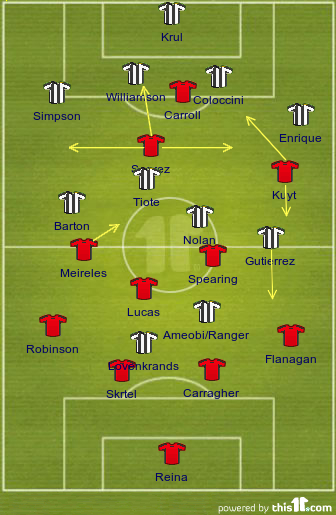
Newcastle tend to play fairly narrow, especially away from home, so the fledging full-backs Robinson and Flanagan may still have to wait for their first serious test at professional level (although Gutierrez's pace and skill may cause Flano some problems if Kuyt doesn't track back). Kevin Nolan is something of a dark-horse in the scoring charts this season (he has 12 in the league, level with Chicharito and Van der Vaart), though he has been less prolific since Carroll and his knock-downs went west. The athleticism of the young Nile Ranger, who looked dangerous when he featured against us as a substitute at St James' Park, could cause some concern for Carragher and Skrtel if he is selected, and Barton's creative influence has been genuinely impressive since he moved to the right-wing, but, on the whole, they do not look like a team particularly equipped with the attributes to frighten a Liverpool side high on confidence.
Tiote and Enrique have been good for Newcastle this season, but both are liable to panic in possession when under pressure, so if Kuyt and Suarez do a good job of closing down, Liverpool might capitalise on their mistakes. Barton defends well, so the home side might struggle to make attacking progress down their left unless Suarez pulls wide to take on the comparatively erratic Danny Simpson.
On paper Liverpool should win this comfortably - they have won 5 of their last 6 league home games, patently have the stronger squad, and have a variety of effective strategies for attack, whereas Newcastle's away form has been poor all season. However, even under Dalglish Liverpool have been prone to bouts of inconsistency this season, so will need to be careful if they are to continue their push for one of the European qualification spots.
(Just as an aside, this article by Paul Tomkins and Paul Grech shows how Liverpool's excellent performances against teams with higher reputations this season sees them in 1st place in the top-six mini-league. If only the English Premier League winner was decided, as in Major League Soccer, by a knockout play-off tournament between the top 8 teams!)
